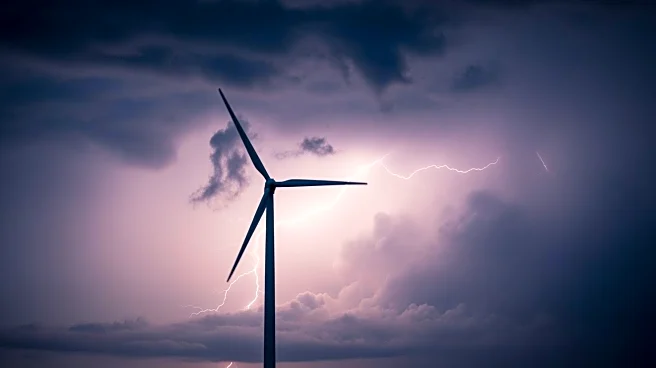What's Happening?
The Royal Meteorological Society has released a report detailing the impact of weather events on the UK energy sector between April 2024 and March 2025. The report highlights significant discrepancies between renewable energy generation and demand during
periods of extreme weather. Notably, cold and cloudy conditions in November 2024 and January 2025 led to lower-than-average wind and solar generation, causing spikes in electricity prices. Additionally, seven named storms during the period caused substantial damage to energy infrastructure, with Storm Darragh and Storm Éowyn being particularly destructive. The report suggests that future energy networks will need to rely on diverse sources beyond wind and solar to meet demand during adverse weather conditions.
Why It's Important?
The findings underscore the challenges faced by the UK energy sector in adapting to climate change and extreme weather events. As renewable energy becomes increasingly central to the UK's energy strategy, understanding and mitigating the impacts of weather on energy infrastructure is crucial. The report emphasizes the need for a resilient energy network that can withstand adverse weather conditions, ensuring reliable energy supply. This is particularly important as the UK aims to reduce its reliance on fossil fuels and transition to a more sustainable energy system.
What's Next?
The report calls for increased collaboration between meteorological research and industry to build a climate-ready economy. It suggests that future planning and maintenance of energy infrastructure should incorporate insights from climate science to enhance resilience. The Royal Meteorological Society and AECOM's partnership exemplifies how scientific research can inform industry practices, potentially leading to policy changes and investment in infrastructure improvements.
Beyond the Headlines
The report highlights the broader implications of climate change on industry and society, stressing the importance of evidence-based decision-making. As extreme weather events become more frequent, industries must adapt to minimize risks and ensure sustainability. The collaboration between scientific organizations and industry leaders is vital for developing strategies that address the challenges posed by climate change.















